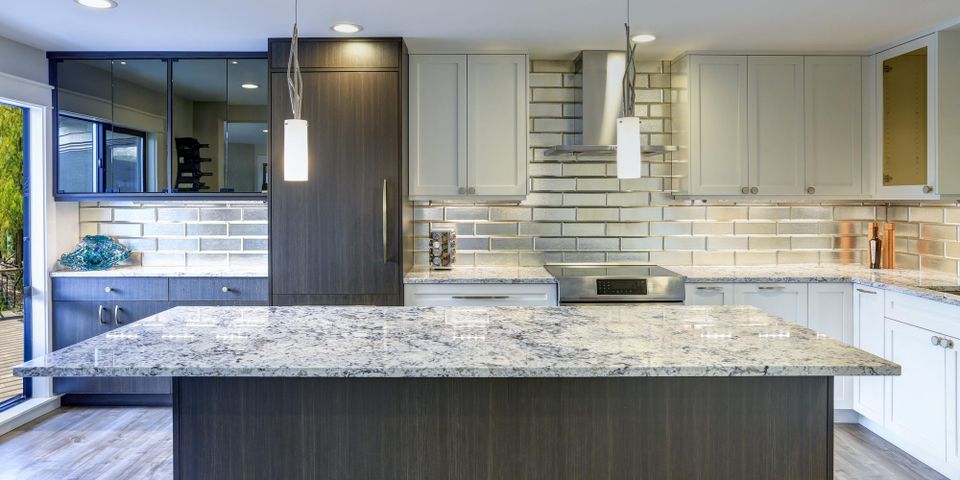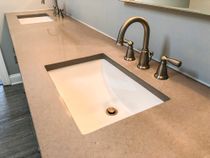What’s the Difference Between Quartzite & Quartz Countertops?

When renovating or building a kitchen or bathroom, choosing a countertop is one of the most critical decisions you’ll make. With so many options on the market, finding the right one can be overwhelming, especially when two materials seem similar. For example, because of the names, many people confuse quartzite countertops with quartz countertops. However, there are many differences between the two. Here’s what you need to know.
5 Differences Between Quartzite & Quartz Countertops
1. Construction
The most significant difference between these options lies in their construction. Although both have a quartz-based composition, one is cut directly from the mine while the other is carefully engineered and fabricated. Quartzite countertops are made by carefully selecting a portion of the stone, cutting it into a slab, then polishing and sealing it. Quartz countertops, on the other hand, are made by blending ground quartz with pigments and polymer resins; this mixture is then poured into a mold and baked into a countertop slab.
2. Moisture Concerns
 Compared to quartz countertops, quartzite is more porous and must be sealed regularly to block out excess moisture. Should a liquid spill, you’ll need to act fast, or it could seep through. However, if you don’t want to worry about spills, stains, or bacterial microbes, quartz countertops are the better choice. Because they’re mixed with polymer resins, they’re more effective at repelling water and various liquids.
Compared to quartz countertops, quartzite is more porous and must be sealed regularly to block out excess moisture. Should a liquid spill, you’ll need to act fast, or it could seep through. However, if you don’t want to worry about spills, stains, or bacterial microbes, quartz countertops are the better choice. Because they’re mixed with polymer resins, they’re more effective at repelling water and various liquids.
3. Durability
Quartz doesn’t stand up well to high temperatures, scratches, or acidic foods, while quartzite does. If you don’t like being extra careful with your pots, pans, dishes, or cutlery, opt for the latter.
4. Maintenance & Care
As mentioned above, quartzite countertops should be resealed at least once a year, if not more in busy households. Quartz, however, doesn’t need much more than standard surface cleaning. Both benefit from cleaning solutions that are specifically designed for stone surfaces.
5. Design Versatility
If you have a particular color palette in mind, quartz will give you more versatility. There’s no limit to which pigments can be used, and you’ll find an even distribution of patterning. If you want to match both your kitchen and bathroom countertops, choose quartz. However, if the intended style is earthy and organic, quartzite countertops are the way to go. Not only is every slab one of a kind, but the material is also a little rougher to the touch, adding to the natural aesthetic.
If you still can’t decide between the two, head to Stone World at Red Bank. For more than a decade, they’ve been the trusted source for natural stone products in Monmouth County, NJ. They offer both quartzite and quartz countertops in a wide variety of styles in their showroom in Red Bank. View some of the options on their website, and call (732) 383-5110 to speak to a staff member.
About the Business
Have a question? Ask the experts!
Send your question

